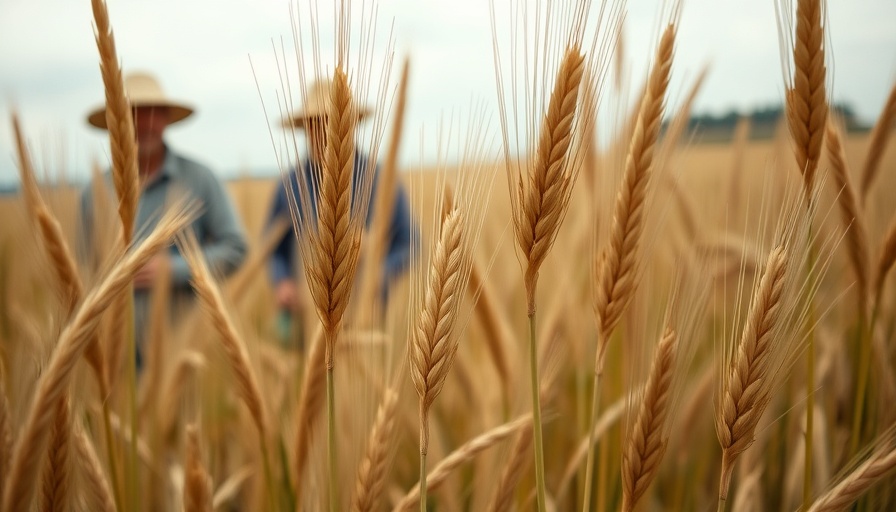
Understanding the Impact of Climate Change on Wheat Production
A recent study highlights a staggering statistic: global wheat yields are about 10 percent lower than they could be if climate change did not exist. This research, published in Proceedings of the National Academy of Sciences, underscores the broader implications of global warming, especially when it comes to food security and agricultural sustainability.
The Effects of Droughts and Heatwaves
Currently, hot and dry weather is severely threatening wheat crops in key production areas like China, which is the world’s largest wheat producer. According to a report, parts of England are experiencing the driest start to spring in almost seventy years, putting additional strain on wheat farming.
These climatic conditions not only reduce wheat yields but also affect other staple crops, such as maize and rice. The study reveals that hot and dry weather increasingly negatively impacts agricultural productivity, raising concerns about future food supplies as climate change worsens.
Technological Advances vs. Climate Change
Despite advancements in agricultural technology, such as improved seeds and synthetic fertilizers, which have propelled global grain yields significantly in recent decades, the detrimental effects of climate change cannot be ignored. While overall yields for the five crops analyzed have increased by 69-123 percent, these gains are now at risk due to the escalating frequency of extreme weather events.
The juxtaposition of technological benefits and climatic struggles illustrates a complex dilemma facing modern agriculture. What happens when advancements in farming innovations are thwarted by an uncontrollable climate?
The Economic Implications of Reduced Yields
The ramifications of lower wheat yields extend beyond agriculture, impacting food prices and food security globally. According to the study, tight global wheat supplies could lead to price increases, affecting consumers and producers. With food prices on the rise due to climatic shifts, the need for sustainable agricultural practices becomes more pressing than ever.
By understanding the interconnectedness of climate conditions and agricultural output, we can better appreciate the urgency of addressing climate change and its effects on food systems around the world.
Pathways to Sustainable Agriculture
One approach to mitigate the impact of climate change on wheat production is to invest in sustainable agricultural practices. Sustainable farming methods, such as regenerative agriculture, can enhance soil health, improve water conservation, and reduce environmental impact. Shifting towards a sustainable living mindset can empower farmers to adopt practices that not only support their productivity but also contribute positively towards environmental conservation.
Furthermore, embracing techniques like crop rotation, cover cropping, and integrated pest management are key steps toward ensuring a resilient agricultural system capable of withstanding climate extremes.
Taking Action for a Sustainable Future
As concerned citizens, we all have a role to play in championing sustainable solutions. From supporting organic products to minimizing our carbon footprint, every action contributes to a healthier planet. Whether engaging in community gardening efforts, advocating for renewable energy, or promoting sustainable food practices, it's imperative to align our choices with our values for a sustainable future.
Conclusion: Investing in Our Agricultural Future
The findings from this study should compel us to take immediate action. With climate change significantly affecting crop yields and food security, prioritizing sustainability initiatives is essential. By fostering eco-friendly agriculture and making conscious choices as consumers, we can contribute to a healthier planet. Let’s work together to create a sustainable future that supports both our agricultural systems and our communities.
 Add Row
Add Row  Add
Add 



Write A Comment